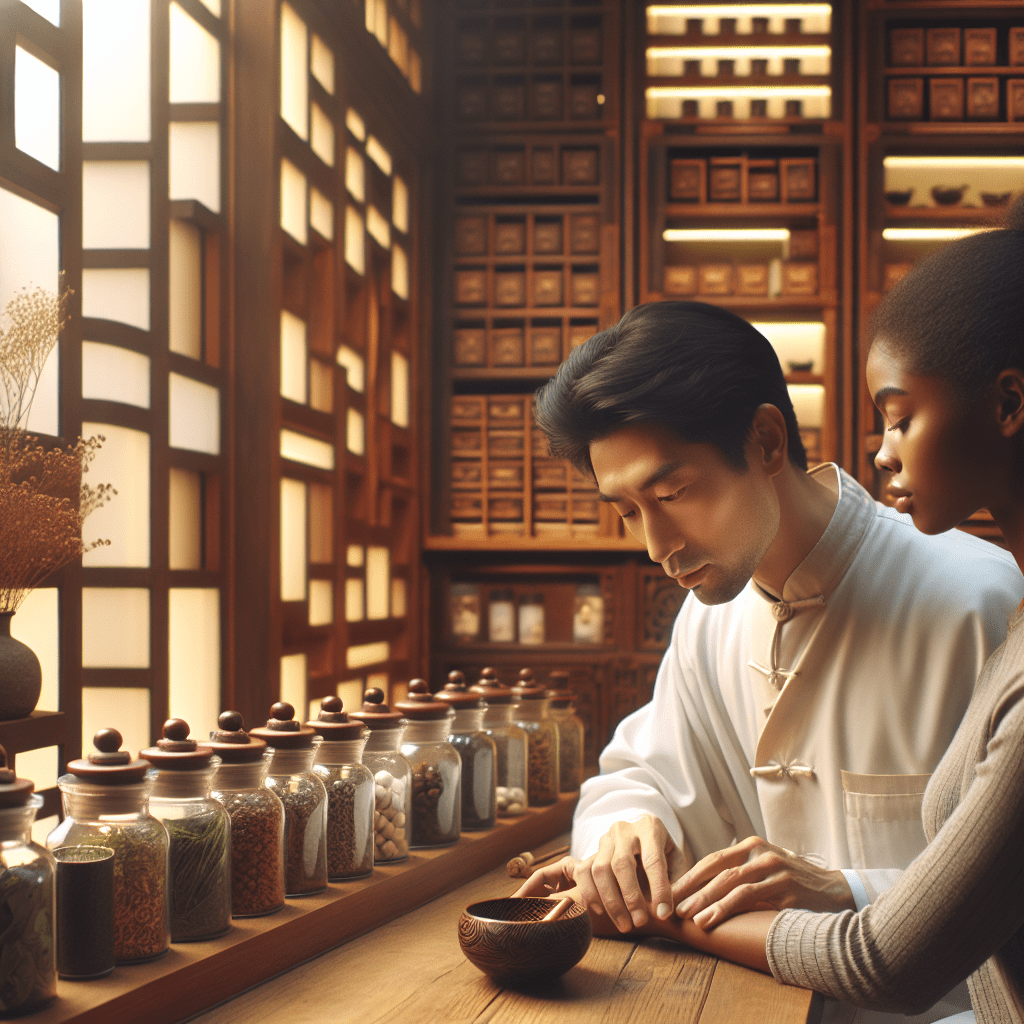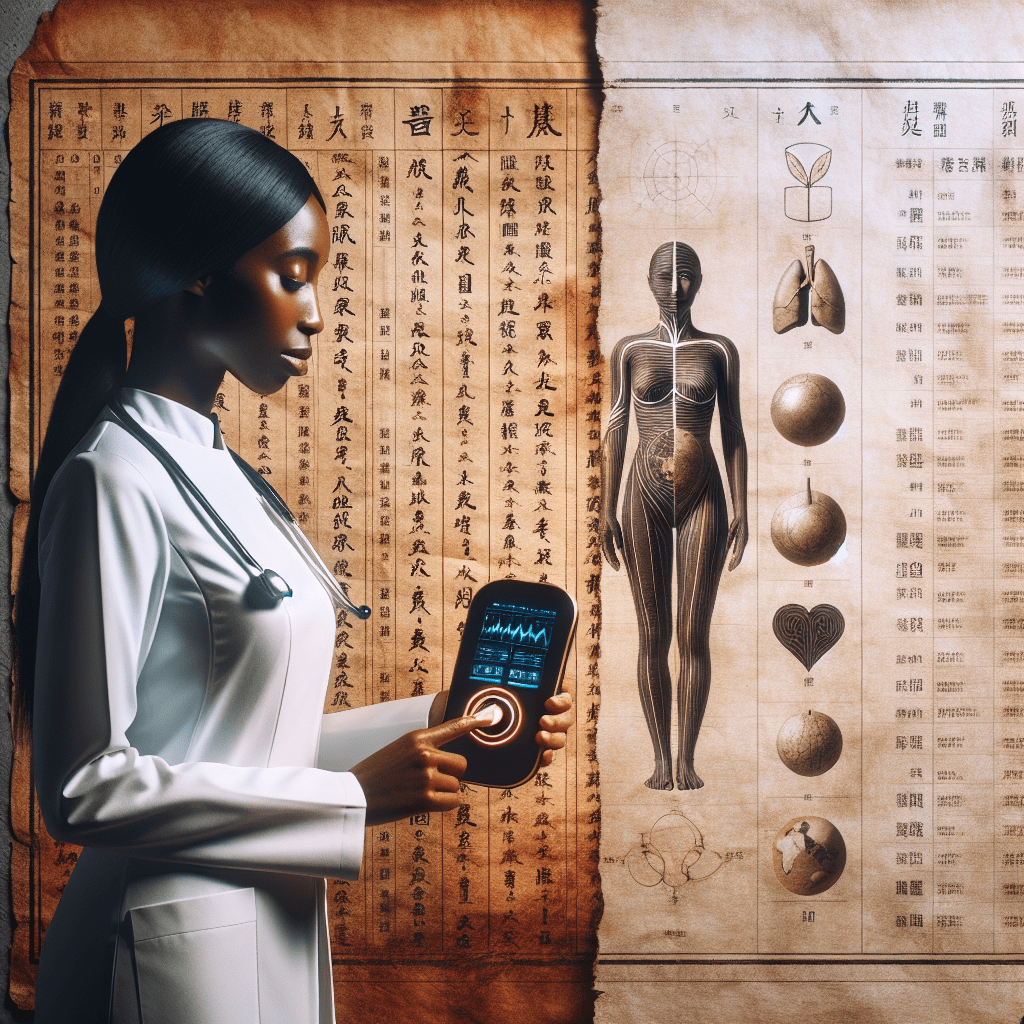Have you ever wondered why some people thrive on spicy foods while others can’t tolerate even a hint of heat? Or why your friend can skip sleep and feel fine, but you need a solid eight hours to function? These differences aren’t just quirks of personality—they might be whispering crucial health secrets that Traditional Chinese Medicine (TCM) has understood for thousands of years.
In the bustling world of modern wellness trends, we often overlook one of the most time-tested approaches to personalized health: understanding our constitutional medical term, or body type. This ancient wisdom isn’t just fascinating history—it’s a practical framework that could transform how you approach your well-being today.
Think of your body constitution as your health fingerprint—uniquely yours and filled with clues about what your body truly needs. For over 2,000 years, TCM practitioners have used these constitutional patterns to create tailored wellness strategies, long before “personalized medicine” became a buzzword in Western healthcare.
The Hidden Language of Your Body Type
Traditional Chinese Medicine doesn’t view health as one-size-fits-all. Instead, it recognizes that each person has a unique constitutional makeup—a specific pattern of energy, elements, and tendencies that influence everything from digestion to emotional responses.
These body constitutions aren’t just abstract concepts—they’re practical tools that can help you decode why certain foods make you feel energized while others leave you sluggish, or why some exercise routines invigorate you while others deplete your energy.
“Understanding your constitutional medical term is like having a user manual for your body,” explains traditional medicine practitioners. “It reveals patterns that have likely been affecting your health your entire life, often without you realizing it.”
The Main TCM Body Types: Which One Sounds Like You?
Understanding your constitutional type is the first step toward truly personalized health. Let’s discover which pattern might be most dominant for you.
Traditional Chinese Medicine classifies body types into several main constitutions, each with distinct characteristics. Let’s explore these types in everyday language—no medical degree required! These classifications are part of the ancient Wu Xing principles that reveal health patterns.
1. The Balanced Type
If you’re lucky enough to have a balanced constitution, you probably have steady energy, sleep soundly, and rarely experience extreme reactions to foods or environments. Your friends might envy your seemingly effortless good health!
Think of the person who can eat almost anything without complaints, maintains a healthy weight without trying too hard, and seems to bounce back quickly from minor illnesses. That’s balanced energy in action.
2. The Qi Deficient Type
Do you find yourself saying “I’m just tired” a lot? If you’re frequently exhausted, speak softly, and prefer to listen rather than talk in group settings, you might have a Qi deficient constitution.
Picture this: After a normal workday, while your colleagues are heading out for happy hour, you’re fantasizing about your couch. Your appetite might be low, and you often feel better after a nap. Sound familiar? Your body might be whispering that it needs more energy-building support.
3. The Yang Deficient Type
Cold hands and feet? Always reaching for an extra sweater when everyone else is comfortable? You might have a Yang deficient constitution.
“My husband calls me a human popsicle,” jokes Maria, a typical Yang deficient type. “I keep the heating pad on even in summer, and I can’t function without hot tea throughout the day.”
Yang deficient types often have pale complexions, feel worse in cold weather, and may experience lower back pain or frequent urination.
4. The Yin Deficient Type
If you run hot—both in temperature and temperament—you might have a Yin deficient constitution. These types often experience dry skin, restlessness, trouble sleeping, and a tendency to feel overheated.
“I’m always the one opening windows in winter and kicking off blankets at night,” says James, who discovered his Yin deficient pattern through TCM consultation. “Understanding this has helped me make simple changes that have dramatically improved my sleep quality.”
5. The Phlegm-Dampness Type
Do you struggle with weight management despite trying various diets? Feel sticky or heavy, especially in humid weather? A phlegm-dampness constitution might be at play.
These types tend to have slower metabolisms, may feel foggy-headed after certain foods, and often experience congestion or a sensation of heaviness in the chest or head.
6. The Damp-Heat Type
If you’re prone to inflammatory conditions, skin eruptions, or tend to feel hot and irritable, you might have a damp-heat constitution.
“I always thought my oily skin and tendency toward acne was just bad luck,” explains Tina. “Learning about my damp-heat constitution helped me understand which foods were making it worse and which cooling strategies actually helped.”
7. The Blood Stasis Type
Do you bruise easily? Experience sharp, fixed pains rather than dull, moving aches? These could be signs of blood stasis, where energy and blood circulation may be impeded.
People with this constitution often have a darker complexion, particularly around the lips or under the eyes, and may experience more intense menstrual cramps or joint pain.
8. The Qi Stagnation Type
Are you the overthinker in your friend group? Do stress and emotions seem to affect your physical health quickly? You might have a Qi stagnation constitution.
These types often experience digestive issues during stressful periods, feel bloated easily, and may have frequent sighing or mood swings. They typically feel better after emotional release or physical movement.
Unlocking Personalized Wellness Through Your Constitutional Medical Term
Now that you know about the different body types, let’s explore how this knowledge can be applied to create a wellness plan tailored specifically to you.
Identifying your constitutional pattern isn’t just an interesting exercise—it’s the key to unlocking truly personalized health strategies. While Western medicine excels at treating acute conditions, TCM’s constitutional approach offers unique insights for maintaining daily wellness and preventing imbalances before they become problems.
“When you align your lifestyle with your constitutional needs, health improvements often happen naturally,” notes TCM practitioners. “It’s not about fighting your body’s tendencies but working with them intelligently.”
This is where the revolutionary approach of EASTCHI AI comes into play. By combining the ancient wisdom of Traditional Chinese Medicine with cutting-edge artificial intelligence, EASTCHI AI helps identify your unique constitutional pattern and provides tailored recommendations for optimal wellness.
Diet According to Constitution
Each body type thrives on different foods. For example:
- Yang deficient types benefit from warming foods like ginger, cinnamon, and lamb, while cold salads and raw foods might make their symptoms worse.
- Yin deficient types need cooling, moistening foods like watermelon, cucumber, and pears, while avoiding excessive spicy foods that further deplete their cooling resources.
- Qi stagnation types benefit from pungent foods that promote movement, like citrus peels and mint, while avoiding heavy, greasy foods that create more stagnation.
“When I started eating according to my constitutional medical term, my digestive issues improved within weeks,” shares Michael, who discovered he was a Qi deficient type. “I’d tried so many elimination diets before, but none addressed what my specific body type actually needed.”
Exercise Tailored to Your Type
Your constitution also offers clues about the best types of movement for your body:
- Qi deficient types generally benefit from gentle, consistent exercise like walking or tai chi, rather than intense workouts that might further deplete their energy.
- Damp-heat types often feel better with more vigorous exercise that helps them sweat out excess heat and dampness.
- Blood stasis types typically benefit from activities that improve circulation, like swimming or yoga.
Lifestyle Adjustments That Honor Your Constitution
Beyond diet and exercise, understanding your constitutional medical term can guide daily habits:
- Yin deficient types benefit from creating cooling rituals, like afternoon rest periods or meditation.
- Phlegm-dampness types often feel better when they establish regular eating schedules and avoid late-night meals.
- Qi stagnation types typically need emotional outlets and stress-management techniques built into their daily routines.
The EASTCHI AI Difference: Ancient Wisdom Meets Modern Technology
Technology now makes ancient wisdom more accessible than ever. Discover how AI is revolutionizing personalized health through constitutional medicine.
While TCM practitioners have been identifying constitutional patterns for centuries, modern technology now makes this ancient wisdom more accessible than ever. EASTCHI AI has pioneered a way to analyze your constitutional type through sophisticated algorithms that consider multiple factors affecting your health.
Unlike generic health apps that offer the same recommendations to everyone, EASTCHI AI creates truly personalized guidance based on your specific constitutional medical term. The system adapts its recommendations seasonally, recognizing that different constitutions need different support as the external environment changes.
“What makes EASTCHI AI unique is how it bridges Eastern medical philosophy with the precision of artificial intelligence,” explains health technology experts. “It’s not just about identifying your type but offering practical, actionable recommendations that fit into modern life.”
The platform embraces the Eastern concept of food as medicine, providing specific dietary guidance aligned with your constitution. Rather than generic “healthy eating” advice, you’ll discover which foods specifically nourish your unique pattern and which might be contributing to imbalances you experience.
Embracing Your Constitutional Pattern: The Path Forward
Your constitutional pattern isn’t a limitation—it’s a roadmap to better health. Here’s how to use this knowledge to transform your wellness journey.
Understanding your constitutional medical term isn’t about labeling yourself or limiting your options—it’s about gaining insight into your body’s natural tendencies so you can make more informed choices.
Many people report feeling a profound sense of relief when they discover their constitutional type. Suddenly, quirks they’ve experienced throughout life make sense within a larger pattern. What might have seemed like unrelated symptoms—cold hands, afternoon energy crashes, and digestive sensitivity—become connected pieces of the same constitutional puzzle.
“Learning about my body constitution was like finally reading the instruction manual for my body after decades of guesswork,” shares Lisa, who discovered she was a Yang deficient type at age 45. “I stopped fighting against my natural tendencies and started supporting them instead.”
The beauty of this approach is its gentleness and sustainability. Rather than forcing dramatic lifestyle overhauls, constitutional medicine encourages small, aligned adjustments that work with your natural patterns rather than against them. This aligns with what holistic practitioners have long observed about body type-based approaches.
Are you ready to decode what your body has been whispering all along? Your constitutional medical term holds secrets that could transform your approach to health—revealing patterns that explain why certain foods, environments, or activities have always affected you differently than others.
By embracing the wisdom of TCM and leveraging innovative tools like EASTCHI AI, you can develop a truly personalized wellness strategy that honors your unique constitutional pattern. After all, true health isn’t about following generic advice—it’s about discovering and supporting what your individual body has needed all along.
Your body type has been whispering its secrets. Isn’t it time you started listening?




